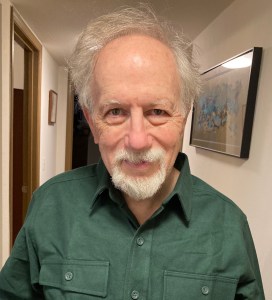
David Friedman, a guest presenter at the 45th Prometheus Awards show, is a regular reader of science fiction and fantasy – and the prominent economist and leading libertarian theorist has been influenced in his thinking by several Prometheus-winning authors.
So it’s interesting to hear Friedman’s views on a variety of sf/fantasy writers, which he shared in response to questions at the end of the Aug. 30, 2025, awards ceremony.
In addition to Poul Anderson (the 2025 Hall of Fame winner for Orion Shall Rise), Robert Heinlein, Jerry Pournelle and Vernor Vinge (Prometheus-winning writers that Friedman discussed during his main speech), Friedman offered comments and insights on the novels of Prometheus winners Lois McMaster Bujold, L. Neil Smith, J. Neil Schulman, C.J. Cherryh (highlighted in a previous blog), Heinlein and other sf/fantasy writers.









